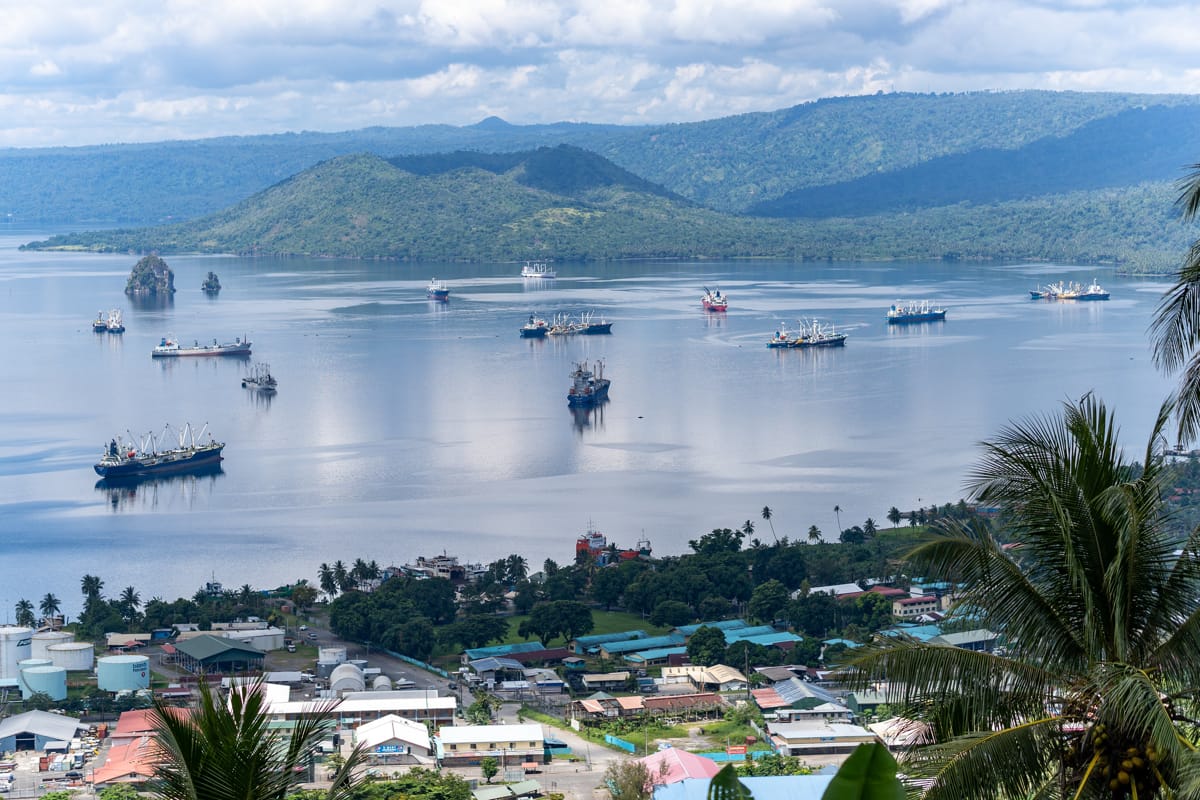Last week, Papua New Guinea’s Prime Minister, James Marape, emerged the victor in what has been a relentless campaign of opposition-led no confidence votes this year seeking to topple him from the leadership. Marape has not flinched from the parliamentary challenges, emphasising that they are part of the democratic process.
But the eight-month drama stemming from rivalry over the top job – while illustrating the government’s resilience – has undermined the focus of the nation’s leaders on critical development issues for the nation.
Marape himself came to power after leading a major defection of MPs from the former Peter O’Neill-led government in 2019, and then winning the 2022 election. Earlier this year, Marape spelled out what he sees as PNG’s achievements under his watch:
“We have not wasted time, we have been actively working. Our achievements include reintegrating over 100,000 school dropouts into second chance learning programs … the Independent Commission Against Corruption is now operational. In healthcare, we’ve made significant strides.”
But a faltering economy, acute cost of living crisis, and urban unrest in January left the government highly vulnerable when a grace period that bans no confidence votes in the parliament for 18-months following an election was lifted in February.
Last year, the PNG parliament had 46 sitting days and debated and passed 28 bills. This year, to date, parliament has sat for only 16 days and passed only three bills.
The World Bank projects medium-term growth of 3 per cent in PNG. But the compounding stress of inflation, unemployment and escalating living costs, added to errors in salary payments to police personnel, drove public anger to tipping point in January. The “Black Wednesday riots” in Port Moresby and other cities preceded the announcement leadership challenge by the opposition on 13 February, following the defection of 12 MPs from the government.
“Walk down the market, you just talk randomly to any person, and they’ll tell you the country needs a change of leadership,” Opposition leader Douglas Tomuriesa told the media in February.
“If leaders on the other side have no confidence in my leadership, they are free to test their numbers in parliament,” Marape responded.
Two days later, on 15 February, Marape called a snap vote of confidence, and, when Opposition MPs walked out, he won unanimously with a vote of 84-0.
Further attempts to instigate no confidence votes later in February, May and June were rejected. But eventually a vote came to the floor, with Rainbo Paita, Marape’s former finance minister, offered as alternative PM. Marape comfortably won the 12 September challenge with the support of 75 out of 118* parliamentary members.

Weak party allegiance, demanding patronage ties for those holding public office, unstable coalition governments, and numerous votes of no confidence in parliament are factors in PNG’s history of political instability. By 2020, the country had recorded nine elections and 17 prime ministers across the 45 years following independence. “The threat of a vote of no confidence often immobilises normal executive and legislative functions,” analyst Bal Kama concluded in a report for the Lowy Institute. Motives for the obsessive machinations about leadership challenges are more often grasps for power and access to government finances, rather than serving an ideal of democratic checks and balances.
What is also clear is the cost to government functions.
The diminished parliamentary productivity has ramifications for the progress of legislation, policies and vital service and development programs, many of which are supported extensively by international donors.
During the last eight months, many days of parliamentary business have been lost to scheming and bargaining to win the support of MPs and ministers. Add to that the sheer bureaucracy involved in such votes. Last year, the PNG parliament had 46 sitting days and debated and passed 28 bills. This year, to date, parliament has sat for only 16 days and passed only three bills, all in February, in contrast to the initial projected calendar of both houses sitting for 48 days. The number of Hansard reports of government business total seven this year, compared to 36 in 2023.
Meanwhile, issues demanding the government’s attention have piled up. Perennial low human and equitable economic development are increasing popular discontent. An estimated 56.6 per cent of PNG’s population live in multi-dimensional poverty, according to the UNDP, and about 80 per cent lack access to reliable electricity. Only 15 per cent of the labour force have formal sector jobs, while most Papua New Guineans struggle with precarious informal work.
As well, in February, tribal unrest in the Highlands province of Enga erupted in a massacre. And three months later, a devastating landslide, also in Enga, affected 8,000 people and killed more than 100. A delayed official response was blamed on politicians distracted with their fight for survival in parliament: the landslide occurred several days before a no confidence vote was due on 29 May.
The diminished parliamentary productivity has ramifications for the progress of legislation, policies and vital service and development programs, many of which are supported extensively by international donors. Australia channels more development funding to PNG than any other country, which, in 2024–25, is expected to amount to $637.4 million. This funding, according to the two countries, aims to help the development of a “stable, resilient and prosperous PNG”, including investment in infrastructure, locally-led development and “positive outcomes in health, education, climate inclusion and protection of marginalised groups”.
And, yet, the no confidence saga may not be over, with Tomuriesa flagging that he will try for another vote when parliament resumes on 26 November.
* This figure was corrected following publication to account for a 2022 redistribution.


